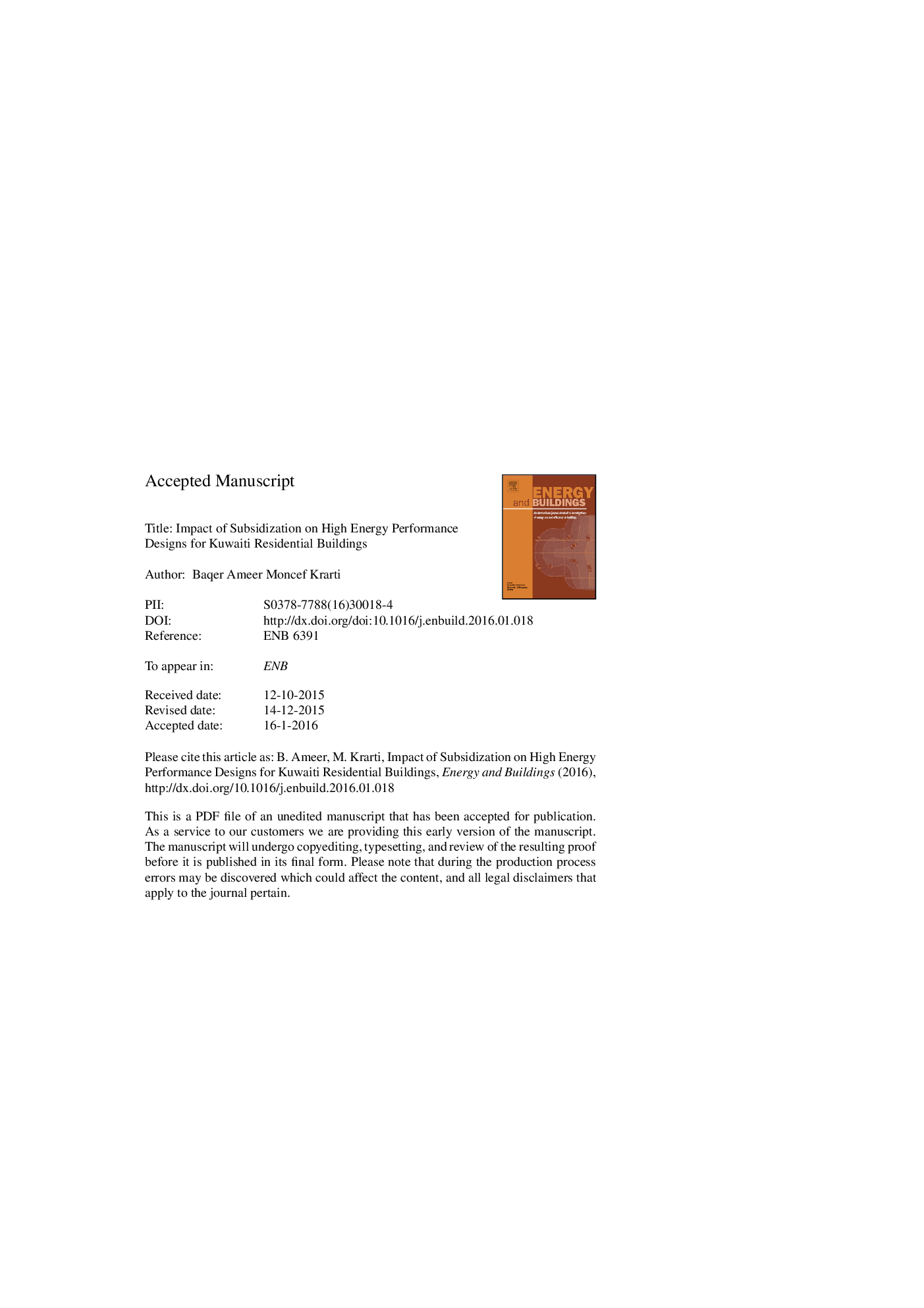| Article ID | Journal | Published Year | Pages | File Type |
|---|---|---|---|---|
| 6730484 | Energy and Buildings | 2016 | 29 Pages |
Abstract
In this paper, the impact of heavily subsidized energy prices is evaluated for the residential building sector in Kuwait. The analysis compares the impact on both the Kuwaiti government and households of the existing building Energy Conservation Code of Practice as well as of a more stringent energy efficiency code. The stringent code is developed using an optimized life cycle cost analysis approach based on a wide range of design and operating energy efficiency measures suitable for Kuwaiti residential buildings. Specific policies are suggested and discussed to improve the energy performance of residential buildings while reduce the financial burden associated with the high energy subsidies. The analysis indicates that both households and the government would benefit from a stringent energy efficiency codes even under the current highly subsidized energy prices. Moreover, it is found that by doubling the electricity prices relative to the current levels and establishing a rebate program to cover the implementation costs of the energy efficiency measures required by a more stringent building energy efficient code, both the Kuwaiti government and the households would benefit. The energy bills would be reduced by 21% for the households while the energy subsidies incurred by the Kuwaiti government would be lowered by 28% relative to the current policy. The expenses associated with financing the energy efficiency program can be recovered within 2 years due to the income from the increase in electricity prices.
Related Topics
Physical Sciences and Engineering
Energy
Renewable Energy, Sustainability and the Environment
Authors
Baqer Ameer, Moncef Krarti,
